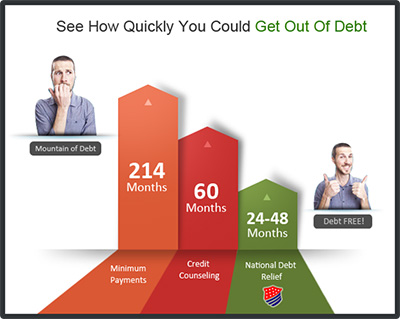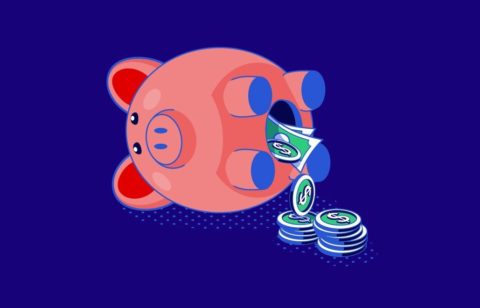Debt consolidation is a great debt solution – but admittedly, it is not always the right option for everyone. You see, there is no one formula when it comes to getting rid of debts. There are various options available and all of them are effective in their own right. You need to understand your specific debt situation and financial position to determine which of them fits your credit requirements.
The challenge in debt relief is not in finding a solution but more of choosing which one will work best for you. If you make a mistake, that can cost you not only your money but also your time and effort as well.
For most people seeking for a debt solution, consolidating debt seems like the most logical of them all. This is especially true if you have a lot of credit accounts. However, it is only effective if you have the right financial circumstances.
Before we figure out if this is the right debt solution for you, let us define it first.
What is debt consolidation all about
There are two things that debt consolidation can do for your credit situation.
It combines multiple debts into one. This is actually obvious. Just by reading the name, you will know that this is all about combining different debts so you end up with just one. Sometimes, people do not have a problem paying their dues. The problem is their busy schedules and the combination of the different debts with various terms and due dates can make credit management hard.
What you need to understand is that each credit account has its own set of details – all of which are important and should not be forgotten. This basically consists of the amount you borrowed, the amount you have to pay every month, the interest rate you are paying on, the due date and the repayment schedule you have to follow. These could be manageable for one debt but it becomes increasingly harder when you take on more financial obligations. Debt consolidation allows consumers to manage their finances with a little more ease by helping combine all these details under one account.
Changes your payment terms. When we say terms, we mean the charges and fees, the payment period and also the interest rate. All the different forms of credit consolidation will change something about your current debt. Hopefully, your choice among the different types of debt consolidation will only be for the better.
Different types of debt consolidation
But what exactly are the different choices to consolidate debt? You need to check debt consolidation reviews so you will find out the specific option that will help you solve your debt situation. To start with, here are the 4 different options that you have.
Balance transfer. This option utilizes a credit card. You will transfer your multiple credit balances into a new card that offers a low or zero percent introductory rate. This will allow you to maximize all your payments and have it credited towards the principal balance. It is important to take advantage of the low-interest-rate because that can help you aggressively lower your balance. Once the introductory rate expires, the credit card will have a higher interest rate.
Debt consolidation loan. This refers to unsecured loans only. In order to get a low-interest loan, you need to have a good credit score. People who borrow personal loans to pay off their multiple debts use this option. There are two ways to do this. If you want to save money, you should borrow a low-interest loan and shorten your payment terms. You will end up with higher monthly payment but in the end, it will lower the total amount that you will save on the loan. On the other hand, if you want to lower your monthly payments to avoid putting too much strain on your budget, your should still aim for a low-interest rate loan with a longer payment period. This will stretch your budget over a longer term and in effect lower your monthly payments. The drawback is you will end up paying more on the loan.
Home equity loan. This literally means using the equity of your house to help you consolidate your multiple debts. This is a secured loan so it usually has a low-interest rate. If your mortgage is worth $500,000 and you have paid off $200,000, the latter amount represents the equity of the house. That means you own the $200,000 value of your home. You can use this equity by getting a new loan against this value. Lenders usually approve a loan that is lesser in value than the equity. So you can expect to get approval for a loan that is less than $200,000. It is encouraged that you borrow only what you really need. When you get a home equity loan, you are putting your home on the line. If you fail to pay it back, that can cost you the house that you live in.
Debt management. Finally, you can consolidate debt through the help of a professional credit counselor. This debt expert will help analyze your current financial and debt position. They will help you create a Debt Management Plan. This plan will show a restructured debt payment plan that suits your financial situation. The credit counselor will have it approved by the creditors and lenders. They will also try to negotiate for a lower interest rate – but this is usually not guaranteed. Once approved, you will send the counselor a single monthly payment – a total of what you need to provide under the DMP. The counselor will take charge of disbursing this money to your different creditors and lenders. Make sure you meet every payment because one late payment could forfeit the whole plan.
Signs that debt consolidation is the answer

Before you choose the strategy that you will use to consolidate your debts, you need to look for the signs that will prove that this is the right solution based on your specific credit situation. There are three important signals that will make debt consolidation the right debt relief program.
If you only need to restructure your debts. There are times wherein you just need to put some order and structure with the way you approach debt payment. It is possible that you are trying to prepare for a big change in your finances and you just want to get things in order. You can be planning to make a big purchase, contemplating on moving to another state or simply getting married. Debt consolidation offers you the chance to restructure your debt so you can streamline your finances.
If you are struggling to monitor all your debts. One of the struggles that borrowers of multiple debt face is the ability to monitor all the debts that they owe. Sometimes, you can mix up due dates or miss out on payments. That can be a problem and it can lead to unnecessary expenses and penalties. You want to make sure that this will not happen by consolidating all your debts. You only have to monitor one debt and pay it each month. How hard can that be?
If you have a stable source of income. Finally, if you have a stable income, this is a sign that you can opt for debt consolidation. Take note that there is no debt reduction here. You have not yet paid off your debts. This is why you need to have a stable source of income. The payments will still happen and your income should be ready to fund it. If you do not have this, then you might find it hard to meet your debt payments and you need something more drastic – like a debt reduction.
Signs that debt consolidation should be avoided
While there are signs that debt consolidation is the right solution for your credit problems, there are also signs that it should be avoided. Here are 3 signs that you should skip consolidating debt and choose another debt relief option.
If you are doing it to have some breathing room to stretch your finances further. The truth is, debt consolidation will help you find some breathing room in your budget. However, you have to ask yourself: why do you need this breathing room? Have you really exhausted all your efforts? If you are only doing it make your payments easier, you might end up using that breathing room to squeeze in more expenses. If that is your course of action, then you are not really solving your debt problem. You might even compromise it and end up with more debt than when you started.
If you need your credit score to be in good shape. Consolidating debt can sometimes harm your credit score. So if you are on the brink of a financial transaction that requires a good credit score, you might want to rethink your consolidation efforts. On the other hand, if the transaction can wait, you can go ahead with debt consolidation and just try to rebuild your credit score as you diligently pay off your consolidated loan.
If you really need a debt reduction. Finally, you need to be honest with yourself in determining if you need to simply restructure your debts or you need it to be reduced. There is nothing wrong with debt reduction and there are legal ways to negotiate to have your debt reduced. You do not have to force yourself to restructure your debt if you cannot afford it. In case you need to lower your balance and there is no way that you can pay it off, then debt settlement may be the better option compared to debt consolidation. Find out more details with #1 debt consolidation Company – nationaldebtrelief.com. Research everything you can about debt settlement and compare it with consolidating debt. Only then can you make an honest and wise choice on your debt solution.
How debt consolidation helps
Once you have identified the signs that make debt consolidation the perfect debt solution, let us discuss how it can actually help. Here are the different ways you can use this debt relief program to solve your credit issues.
- It can simplify your monthly payment by rolling it into one. Obviously, the whole idea of this debt relief program is to combine your multiple debts so you only have to think of one payment each month.
- It can lower your interest rate. This is not a guarantee for some debt consolidation programs – specifically for Debt Management. But for balance transfer and debt consolidation loans, you can get a lower interest rate as long as you have a good credit standing.
- It can lower your monthly payments. This is great for those who want to have some breathing room in their monthly budget. To be clear, there will be no debt reduction. What happens is your payment terms will be longer so it can stretch your balance. This strategy will give you a lower monthly payment.
- It can help you save money. This can only be achieved if you shorten your payment terms. It will end up making you pay a higher amount each month but it will lower the total amount that you have to pay for the whole debt.
- It will help you build your credit report. Since you only have one payment to think about each month, the chances of missing a payment will be lower. As you continue to pay your dues, that can help you build a better credit report.
Dangers of debt consolidation
While consolidating debt brings a lot of benefits, it also has a lot of disadvantages. You need to identify what these dangers are so you can make the necessary arrangements to avoid them.
- It gives you a false sense of confidence. The way it simplifies your debt payments will give you a sense of improvement in your credit situation. While this is a great way to lower the stress that you feel towards your debts, it can give you a false sense of accomplishment. As great as it may be to simplify your payments, you have not paid anything yet. You still have a long way to go. Do not dwell on the fact that you have one payment each month. The amount that you will pay will still be the same so you have a lot of payments ahead of you.
- It can tempt you to borrow more money. Here is a perfect scenario. You use the equity of your home to borrow money so you can pay off all your credit card debt. You are approved and the credit cards are paid off. You then feel the urge to use these cards again because of the zero balance. Instead of solving your credit situation, you actually just made it much worse. You still have to pay your home equity loan and the new credit purchases that you just made.
- It does not solve the problem. What you have to realize is that consolidating debt is all about restructuring your payments. It did nothing to pay off your debts. It simply made it easier for you to make payments – that is all that it did. So the journey towards debt freedom is still long from hereon.





